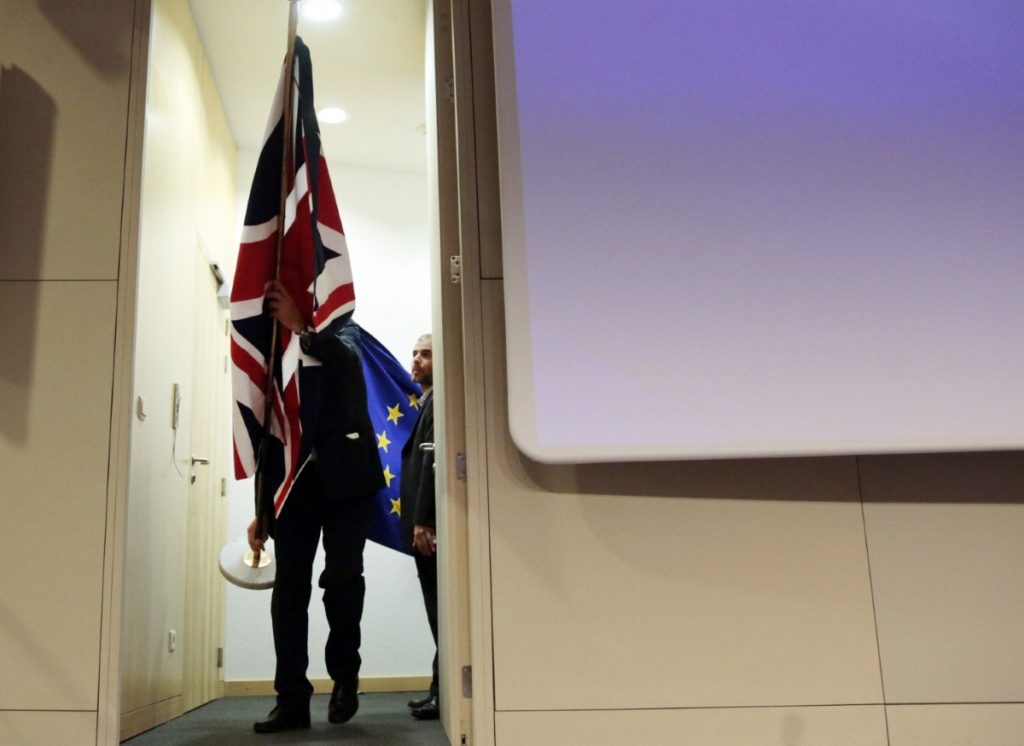The chief obstacles to Brexit do not come from its opponents, but from the incompetence of those trying to deliver it. This fact has largely escaped Remainers, who often worry that there is no-one to lead their side of the argument. In reality, no political figure – regardless of how charismatic or principled they were – would be able to compete with the Brexiters' capacity to sabotage their own project.
This sabotage is mostly the result of a lack of planning. And that lack of planning is the result of purposefully-created Brexit echo chambers at the height of government. Industry leaders going to see David Davis when he became secretary of state were taken aside by civil servants ahead of the meeting and told to walk in saying that Brexit presented huge opportunities. Any who didn't were soon asked to leave.
Since those early days, Davis has avoided those who highlight the complications of Brexit or who insist on reporting the views about Britain's behaviour from the continent. Instead, he has surrounded himself with low-calibre ideologues and cultivated media contacts only with the most pathologically supportive columnists.
Echo chambers tend to rot the brain and Davis' echo chamber is no different. His speech to German business leaders yesterday was an unmitigated disaster, met with a mixture of bemusement and outright mockery.


What is extraordinary is how tone deaf it was. "Putting politics above prosperity," Davis said, "is never a smart choice". This was greeted with astonishment. After all, Europeans have spent the last 18 months watching Britain doing exactly that. But Davis does not really know this, because he has not been meeting with Brexit critics. He has been meeting with Brexit supporters. His own staff should plainly have been able to draft a speech which did not make such elementary tonal errors, but they are evidently unable to do so.
Davis then elaborated at length about the kind of trade deal he wanted with Europe – one for a country which was "much closer than Canada, much bigger than Norway". This is a coded reference to the ultimate British policy aim, which is to secure a deal which offers frictionless trade but rejects regulatory harmonisation. This is not possible, because the frictionless trade is a result of the regulatory harmonisation. It is like trying to fly using a car. But Davis has not recognised this yet, because he is surrounded by fellow true believers, rather than those speaking accurately about what is possible and what is on offer.
Humiliatingly, his speech coincided with the leaking of Europe's sketch of a trade offer. It is miles away from the Brexit secretary's rhetoric. If Britain is outside the single market and customs union, the only offer available is a standard goods trade deal, along the lines of Canada. It has been clear throughout this is the case, because Europe has been saying it. But Davis seems blissfully unaware.
Another dose of cold reality was being delivered by the Irish prime minister, Leo Varadkar, who today gave Theresa May a one month deadline to provide detailed proposals for avoiding a hard border in the island of Ireland. She cannot do this, for the same reason that Davis cannot secure frictionless trade without regulatory harmonisation. It is not possible. It is not on offer. But Westminster still seems hopelessly certain it can be avoided by 'creative' and 'high-tech' solutions. The reasons they believe this have much more to do with faith than reason.
Brexiters have not just misunderstood how customs borders work, they have also misunderstood the power dynamics of Bexit. Ireland knows that it has far less influence in the second stage of talks than it does in the first stage, where the issue of the border provides them with something akin to a veto. They are now using the leverage granted to them by the structure of the talks. Westminster seems shocked, but it was evident that they would do this throughout the process. The only way they could be surprised is if they failed to war game the structure of the talks before agreeing to them.
It is all coming apart for the Leavers. And the manner in which it is coming apart would be entirely predictable to anyone who had been following events and reading into the complications they brought with them. Instead, the ministerial team has closed itself off to complexity. That may be emotionally comforting, but it does nothing to reveal the hazards ahead. They are now stumbling into precisely the pits their critics warned were ahead of them.
Ian Dunt is the editor of Politics.co.uk. The new edition of his book – Brexit: What The Hell Happens Now? – is out now.
The opinions in politics.co.uk's Comment and Analysis section are those of the author and are no reflection of the views of the website or its owners.









